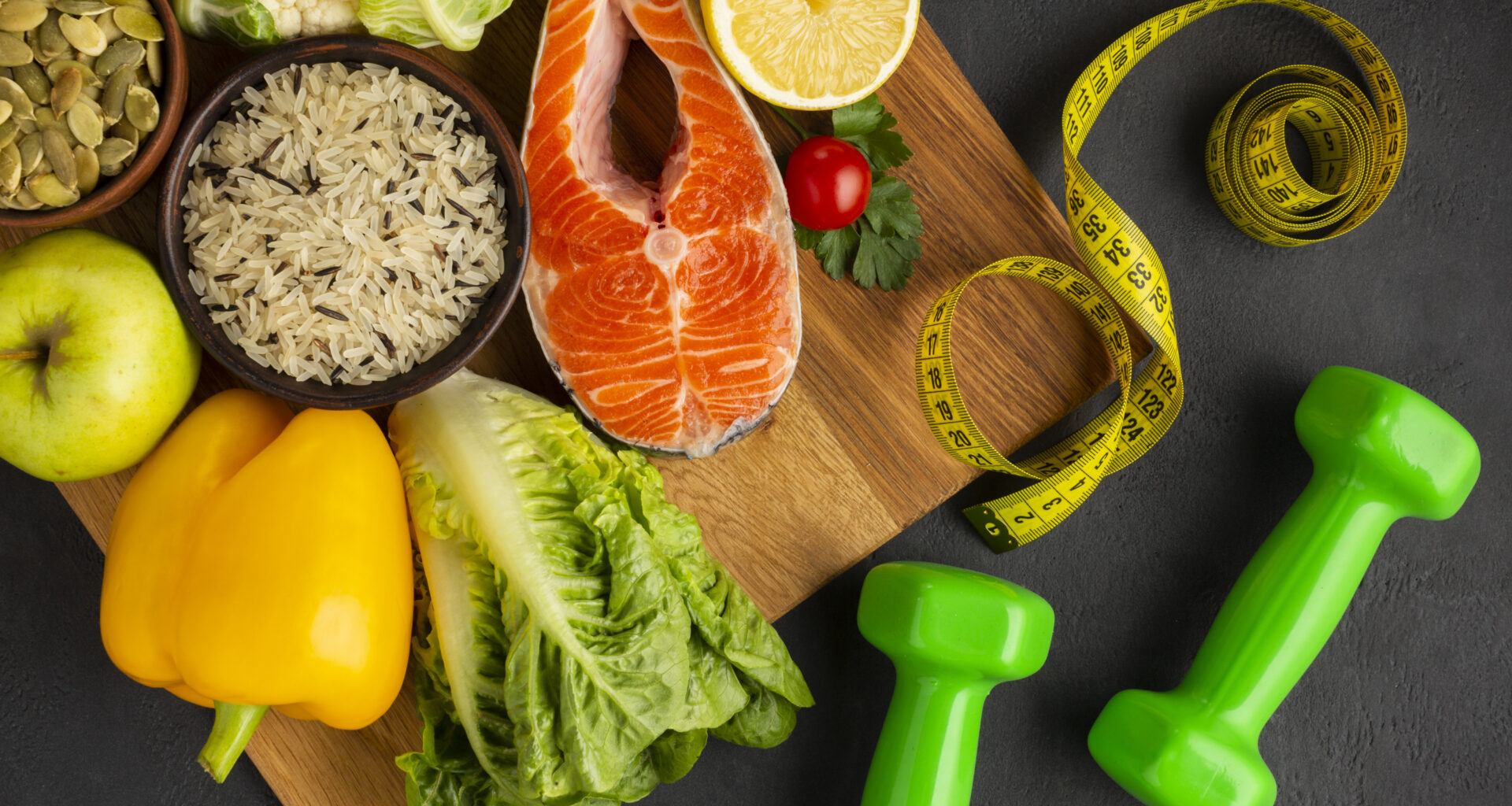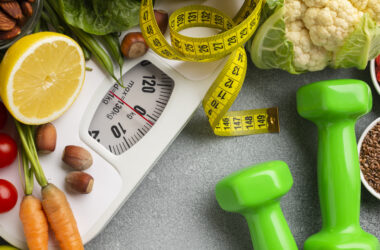Let’s talk about protein since it is an ally in the battle against obesity. Protein helps reduce body weight in ways other than just building muscle. We’ll discuss the advantages of protein for weight loss, how important protein is for weight loss, and how much protein for weight loss is needed in this blog.
Understanding the Link Between Protein and Strong Muscles
Protein is the building block of muscle. Small rips in muscle fibres are a natural consequence of physical activity, especially resistance training. By providing the necessary building components, proteins function as a sort of repair crew, fortifying and restoring these muscles. You might think of it as a team that helps you build muscle and heal injuries simultaneously.
Read More: Choosing Pilates
How Protein Works for Weight Loss
The exciting part is about to begin when you ask yourself how much protein for weight loss is needed. Having muscle does more than simply make you look good; it also helps you burn calories even when you’re not actively doing it. Therefore, your body’s fat-burning capabilities improve in tandem with your protein intake and muscle-building efforts. It’s the same as making your body’s engine smarter so it can burn fat faster.
Protein’s Function in Encouraging Weight Loss
Beyond just cutting calories, protein for weight loss; it’s not just for muscle growth.
Boosts Metabolism
Lean muscle is a good supply of protein for weight loss, which increases total body burning of calories. It’s one more thing to help you in your weight loss journey.
Gives You A Satisfied Feeling
Since protein makes you feel full and satisfied after eating, it serves as a signal to your brain that you have had enough. You can reduce your intake of unhealthy snacks by doing this.
Preservation of Muscles
Losing fat instead of muscle is the preferable option while trying to be in shape. Protein makes it easier to lose weight and maintain muscle mass. It feels as though your muscles are shielded.
Preserves Vitality
Your energy levels can be stabilised with the help of protein, preventing spikes and valleys. It’s like having an endless supply of good vibes when you have it on hand.
Boosts Metabolism
Your body’s capacity to burn fat increases as your muscle mass that builds muscle protein increases. It’s similar to telling your body to burn fat instead of carbohydrates if you want to drop weight quickly.
Read More: What is Processed Foods
Making Protein Work for Your Objectives of Losing Weight
Optimising the health advantages of protein extends beyond just gaining muscle mass; it also involves using protein to effectively reduce body fat, change body composition, and improve general health.
Select Lean Protein
Select low-fat protein sources such as fish, poultry, tofu, and lentils. By employing this strategy, it is possible to gain muscle without gaining undesirable fat.
Divide Up Your Protein Intake
Consume your protein throughout the day as opposed to all at once. This guarantees that your muscles will always have something to grow from. It’s analogous to giving your body building blocks all the time.
Get Up and Exercise
When used in exercise, particularly strength training, protein is more effective. Protein provides the energy required for muscles to grow, as directed by physical activity. It’s best described as a double boost.
Include More Protein During the Meal
Make sure that every snack and meal include protein. Adding protein to every meal, whether it’s eggs for breakfast, chicken salad for lunch, or yoghurt for a snack, will help you lose weight.
Select Whole Foods
Although protein supplements are effective, the greatest meals are real ones, like chicken or beans. It’s like getting all the health advantages along with your protein.
Read More: Stop Late Night Snacking
Main Sources of Protein
When trying to lose weight, it’s crucial to eat the right proteins. To save you time and effort, let’s determine which protein sources are most effective in promoting weight loss.
Chicken Breast
We highly recommend the chicken breast. Because of its low fat content and high protein content, it meets your body’s protein needs. Since there are so many different ways to make it, it’s a fantastic option for dieters.
Fish
Fish, and salmon in particular, are weight loss superheroes. Beyond its high protein content, it also has heart-healthy omega-3 fatty acids. It makes you feel full for longer, so you eat less overall.
Tofu with Tempeh
For those who choose plant-based diets, tofu and tempeh are excellent choices. They are soy-based and provide the essential building blocks your muscles need to shed pounds.
Greek Yoghurt
Eat some Greek yoghurt for a satisfying snack. Due to its higher protein content and lower sugar content, it is an excellent option for your weight loss quest. It also helps with digestion.
Eggs
Eggs are a nutritional powerhouse. They are rich in essential nutrients including amino acids and good fats. Eating eggs helps you control your snacking since they fill you up and build your muscles.
Trim Beef
You can get all the protein you need without adding too much fat if you choose lean meat. Additionally, beef is a good source of iron and zinc, both of which are good for your overall health.
Whole Beans and Legume
For vegans and vegetarians in particular, legumes like beans and lentils are tiny protein bombs. They help with digestion and keep you full because of the high protein and fibre content.
Quinoa
Since it contains all nine essential amino acids, quinoa is considered a complete protein. It’s a versatile option that adds variety to your meals while also strengthening your muscles.
Cottage Cheese
A satisfying and simple snack would be cottage cheese. Your weight loss journey will be supported by its low calorie and high protein content, allowing you to preserve your muscles.
Turkey
Another form of lean protein for weight loss is turkey, which is similar to chicken. This is a smart move if your weight loss goals include keeping or gaining muscle.
Read More: Recommended Exercise By Age
Conclusion
Protein will support you throughout the weight loss process by preventing hunger pangs and assisting in the development of muscle. If you understand what protein for weight loss is, appreciate its health benefits, how much protein for weight loss is needed and routinely incorporate it into your diet and exercise routine, you may effectively lose weight.
Let protein be your ally on the journey to a stronger, healthier, and more self-assured you—one that goes beyond weight reduction. So, as you set out on a path to a healthier, more energised you, let protein be your saviour.
FAQs
Aim for 0.36 to 0.8 grams of protein per pound of body weight daily, considering factors like age, activity level, and health status.
Insufficient protein intake can lead to muscle loss, slower metabolism, and challenges in achieving sustainable weight loss, highlighting the importance of including protein in your diet.
Opt for lean protein sources such as chicken breast, fish, tofu, and legumes, as they offer essential nutrients, promote satiety, and support muscle maintenance during weight loss efforts.





